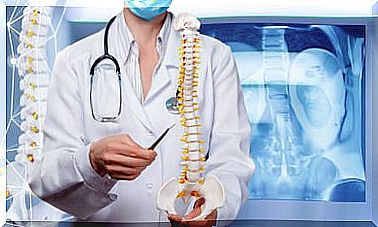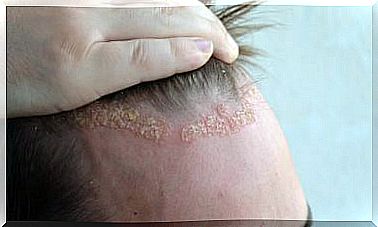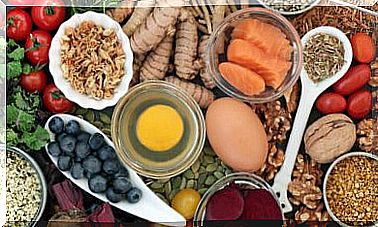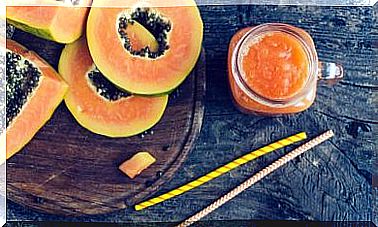What Should My Diet Be If I Have Hyperthyroidism?
Diet should be adjusted when diagnosed with hyperthyroidism. The thyroid is only about 2 inches long, but a malfunction triggers a wide variety of symptoms. The reason is that this small butterfly-shaped gland secretes hormones that have direct action on almost all bodily functions.
Therefore, when it suffers some type of alteration, it is necessary to improve the diet to modulate its activity and avoid complications. What is hyperthyroidism? What foods to eat and which ones to avoid? Below, we solve these questions in detail.
What is hyperthyroidism?
The thyroid is a small gland, located in the neck. Its function is to secrete different types of hormones, some of which are essential for the body. Its proper functioning is essential for health, as these hormones affect almost every cell in the body. Specifically, its functions include the following:
- Regulation of energy use.
- Protein synthesis.
- Enzymatic activity.
- Corporal temperature regulation.
Hyperthyroidism is a disorder in which the gland does not produce thyroid hormone normally. In this case, and for various reasons, the problem is the increased secretion of hormones T3 and T4. Within it, different diseases such as Graves-Basedow disease, multinodular goiters or toxic thyroid adenomas have been described.
When hyperthyroidism appears, all the functions of the body tend to accelerate. Consequently, a series of symptoms appear, such as those mentioned below:
- Weightloss.
- Nervousness.
- Difficulty to sleep.
- Tremors
- Increased sweating
- Palpitations
In case of suffering from a thyroid disease, such as hyperthyroidism, it is necessary to go to the doctor or endocrinologist to guide the treatment that best suits each particular situation.

Diet in hyperthyroidism
As the experts from the British Thyroid Foundation point out , there is no diet protocol for thyroid gland diseases. However, maintaining a good diet is essential, as it helps control symptoms and improve quality of life.
Different nutrients play an important role in the function of the gland and the normal secretion of hormones. The main ones are iodine and selenium, although other contents in foods such as cruciferous or soy are also studied.
Taking them into account is important as it translates into a better state of health. Do not forget that hyperthyroidism is a disease that, once diagnosed, will last a lifetime.
Thus, according to the specialist doctor Óscar Vidal, there are two aspects that must be taken into account :
- Maintain a diet low in those foods that help produce thyroid hormone, such as iodine.
- Enhance other nutrients with antioxidant capacity, which allow healthy cells to regenerate. This is the case with selenium.
How to control the amount of iodine?
In the diet for hyperthyroidism, it is necessary to monitor iodine levels, since it participates in the production of thyroid hormones. It is necessary to make a rational consumption, because it is very difficult to eliminate it completely.
The main sources of iodine in the diet are the following:
- Iodized salt.
- Marine foods such as some fish, shellfish or seaweed.
- Dairy products.
- Yolk.
- Some cereals and grains.
In addition, foods from the cruciferous family (such as broccoli, cauliflower or Brussels sprouts) contain a principle that inhibits the absorption of iodine by the thyroid gland.
The importance of selenium in the diet for hyperthyroidism
Selenium is one of the nutrients most closely related to the thyroid gland. A review of scientific literature establishes the specific role that this trace element has in its functioning, which is found deposited in many body tissues, especially the thyroid gland, where it is found in the form of selenoproteins.
This type of protein has a very important antioxidant action, so it can be said that selenium contributes to a protective activity of the thyroid and the improvement of health in general.
Some specialists discuss selenium supplementation in Graves’ disease. However, this nutrient can also be obtained through diet. We find it in foods such as salmon, whole grains or eggs. But undoubtedly the biggest source is Brazil nuts.
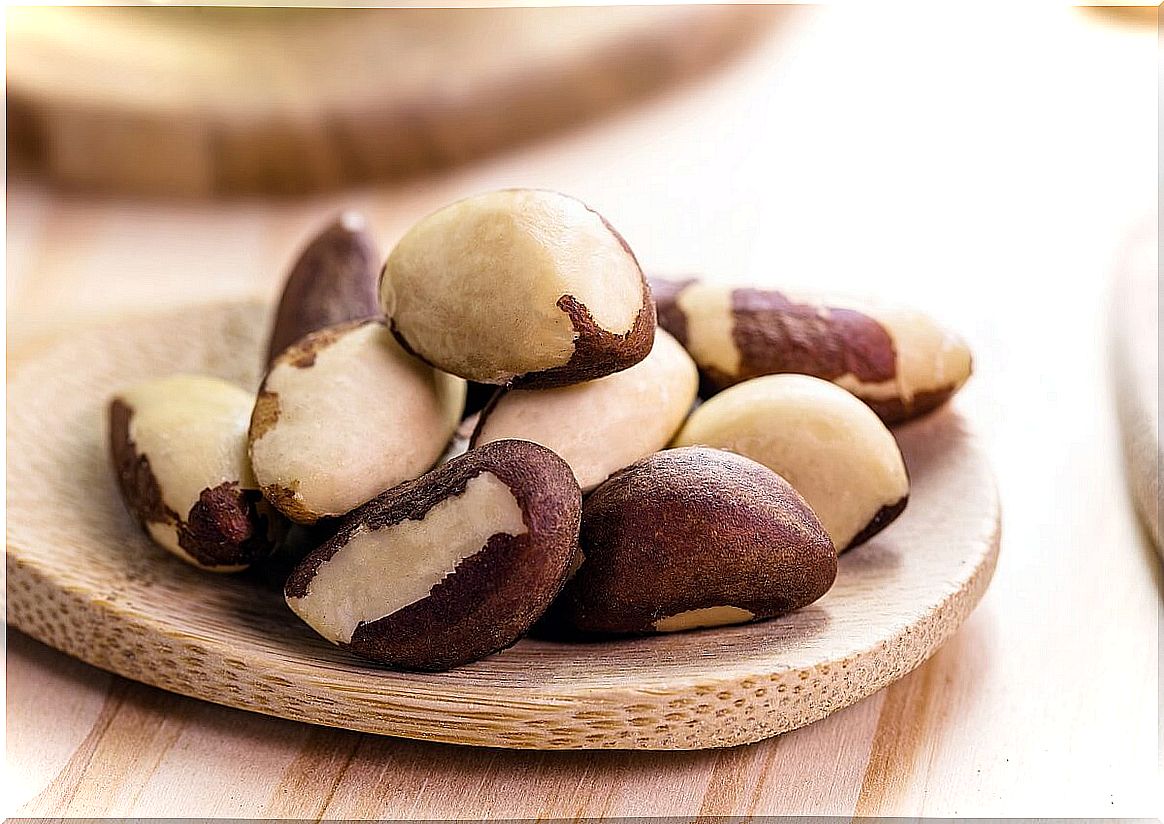
Hyperthyroidism and vitamin D
As we discussed earlier, thyroid hormones have effects on a large number of cells and functions in the body. These include the bones, which can be weakened if hyperthyroidism is not treated properly.
But in addition, as pointed out by the British Tyroid Foundation, in the analyzes of people who suffer from this disease, low levels of vitamin D are observed, although more research is necessary to know what is the cause and its possible consequences.
What is clear is that it is worth paying special attention to vitamin D, and reinforcing all the habits that are positive for musculoskeletal health. Some recommendations are as follows:
- Do physical exercise on a regular basis and do some activity that strengthens the muscles.
- Sunbathe for ten minutes a day. It is necessary to take advantage of the hours of the day when the sun is not too strong to avoid its adverse effects.
- Consume foods with vitamin D, calcium and phosphorus for optimal skeletal status. These are found in dairy, oily fish, almonds, chickpeas, vegetables, and seeds.
A good diet in hyperthyroidism is essential for the success of the treatment
An overactive thyroid is a disease derived from a malfunction of thyroid hormones. Although the main treatment is pharmacological or surgical, a special diet for hyperthyroidism cannot be ignored.
Following a balanced and healthy diet, and paying attention to foods with iodine and selenium, is key to accompany drug treatment and ensure a better quality of life.



